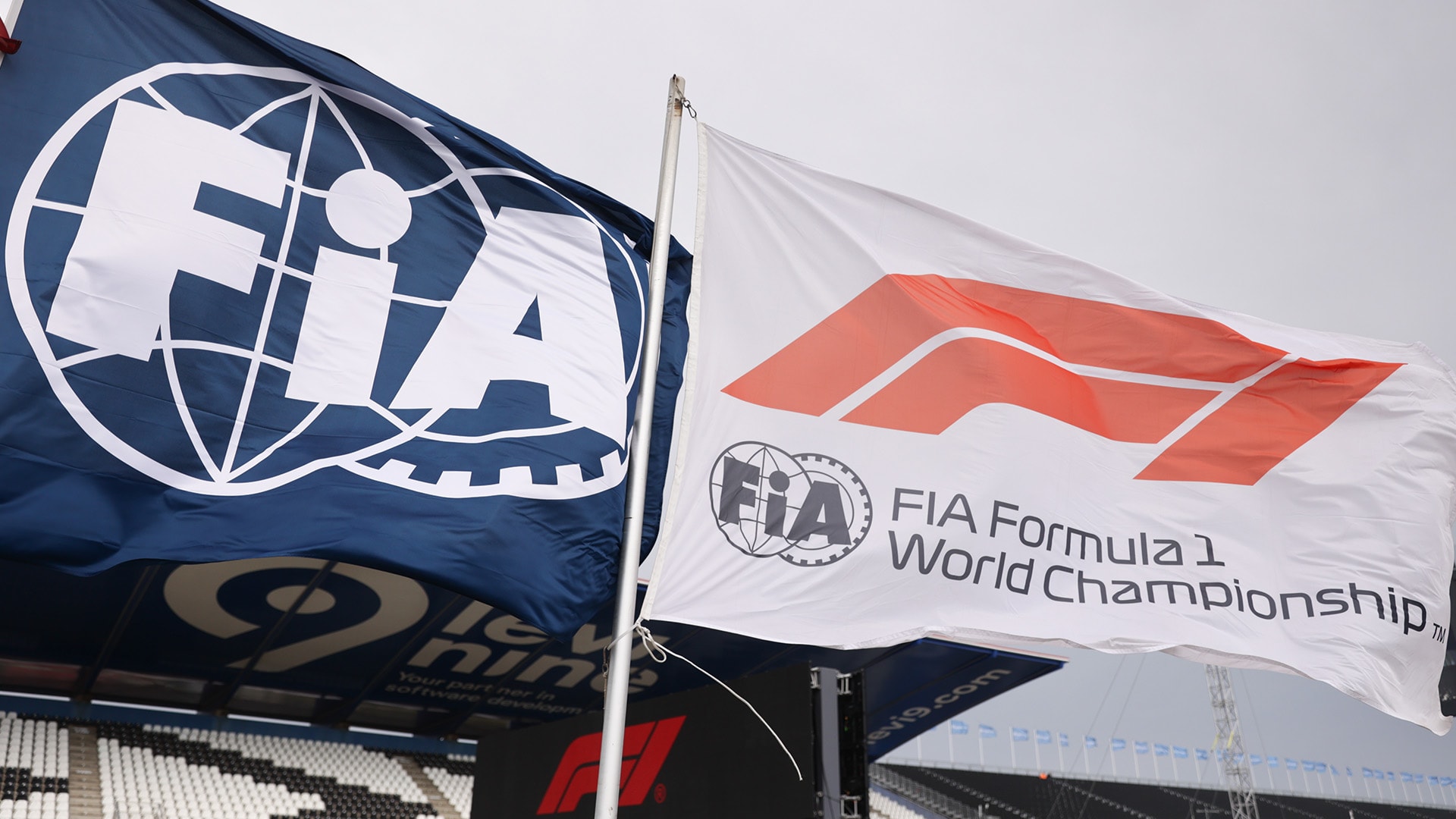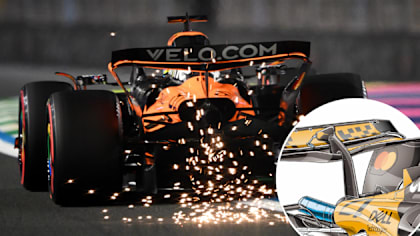)
Technical
5 of the 2019 F1 season’s most intriguing tech developments so far

Share
)
As the 2019 F1 cars hit the Barcelona track last week for testing, so we saw some of the innovations that were either unclear or hidden altogether in the respective launches of the cars the previous week. Here we look at five of the most intriguing developments.
1. Ferrari’s radiator side exit
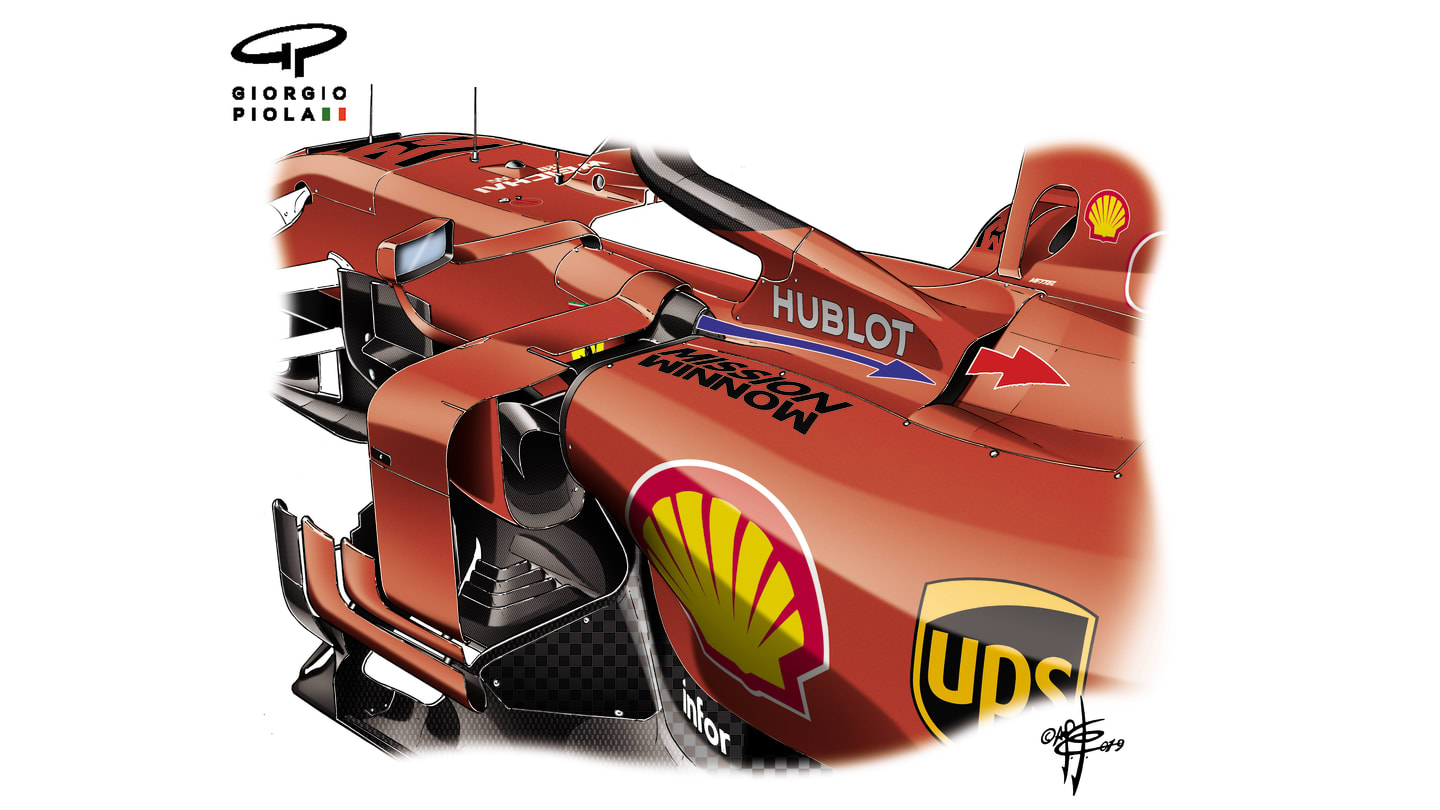
Ferrari have created an airflow exit for the radiators directly behind the radiator (the red arrow in the illustration above). This is only a small part of the total exit area, with most of it still exiting at the rear, around the exhaust, but devoting this small area in the side to venting the hot air brings two potential advantages:
- The outlet area at the back can be correspondingly smaller, allowing the bodywork to be more tightly-waisted there, which helps accelerate the airflow, increasing downforce.
- The flow can be aligned with that coming from the vortex generated by the hump in the bodywork ahead (the blue arrow), increasing the speed of the air flowing out of the radiator outlet and therefore its cooling capacity.
2. Renault’s rear-wing endplate winglets
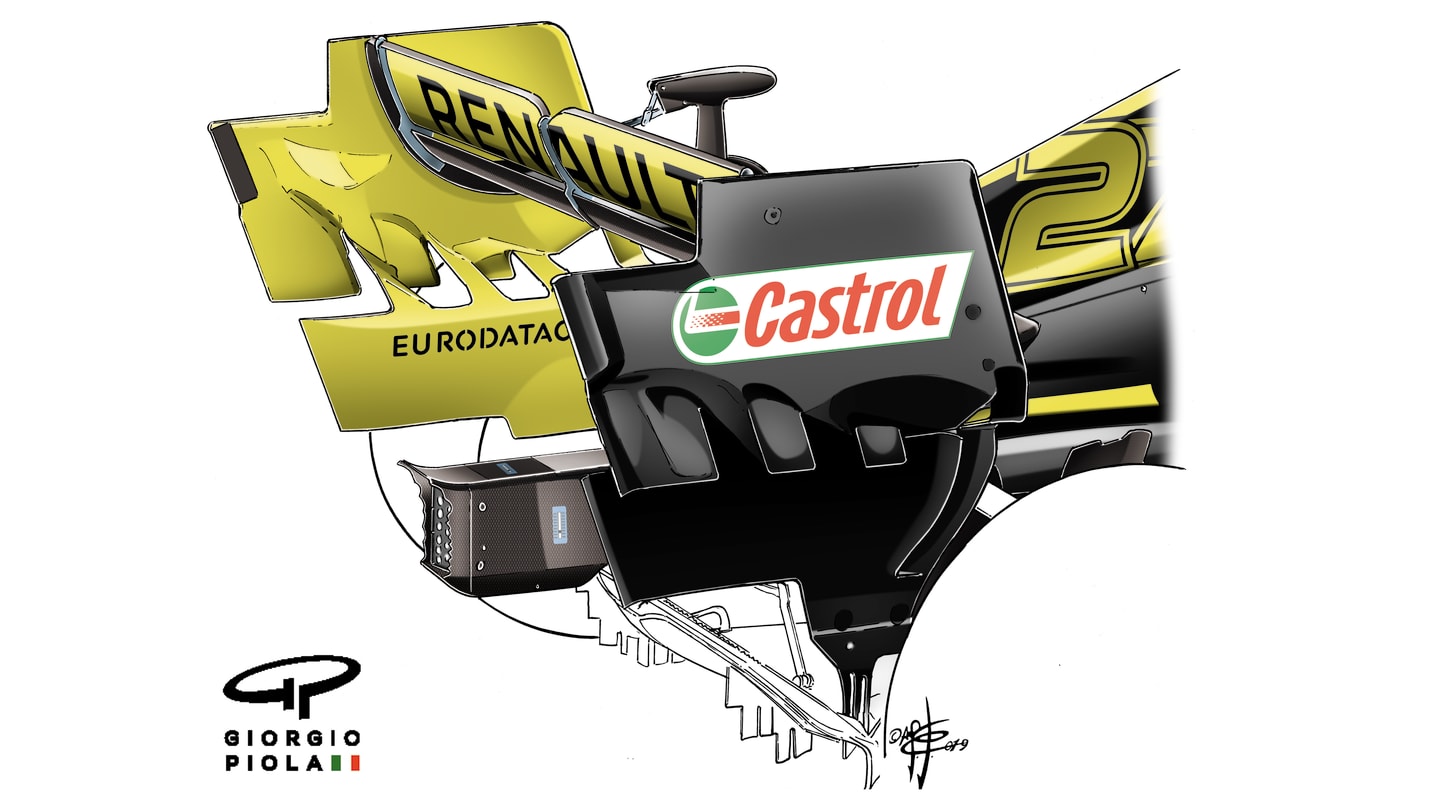
Renault ran in the first week of Barcelona testing with a rear-wing endplate quite different to that fitted at the launch – and to that on any other car. In the transition between the two permitted wing widths at the upper and lower sections (wider at the top, narrower beneath), Renault have introduced a sequence of three turning vanes within the endplates that will generate a small amount of downforce in addition to that from the wing elements.
Front Wings: The differing designs of Mercedes, Ferrari and the rest of the 2019 grid
3. Alfa Romeo’s front wing
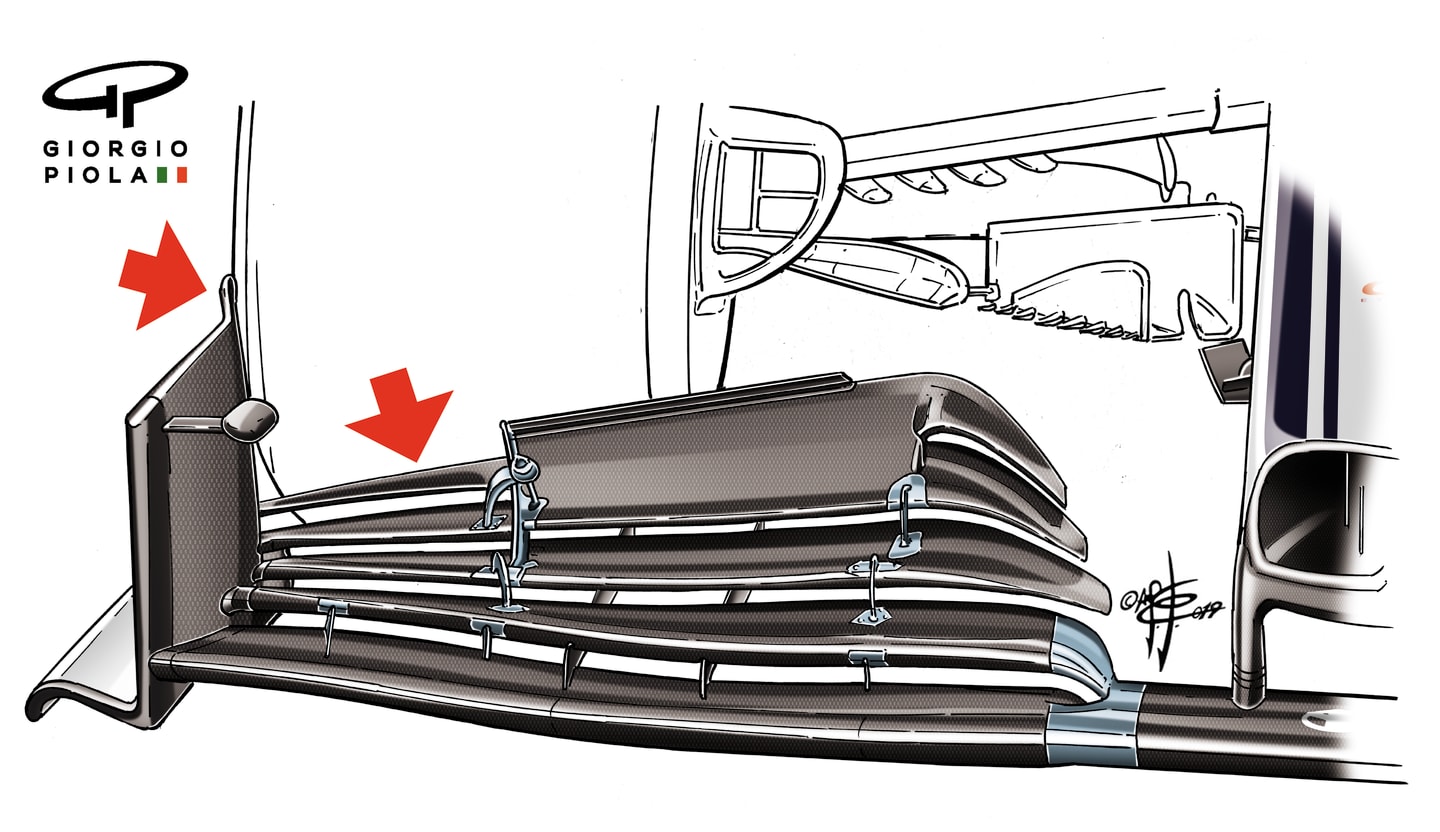
By the time of Barcelona pre-season testing Alfa Romeo had revised their initial front wing to a less extreme version of the same concept, with the elements at the outer ends ahead of the tyre still much skinnier than those in the main part of the wing, in an attempt to aid the airflow ‘outwash’ itself around the tyre.
But whereas the original outer elements were almost flat, in this second version they were partially raised. In the main part of the wing, inboard of the tyre, there are just four elements rather than the permitted five. This gives a greater downforce-generating surface area to compensate for the skinniness of the five elements ahead of the tyre.
4. Ferrari’s ‘extractor’ wheels
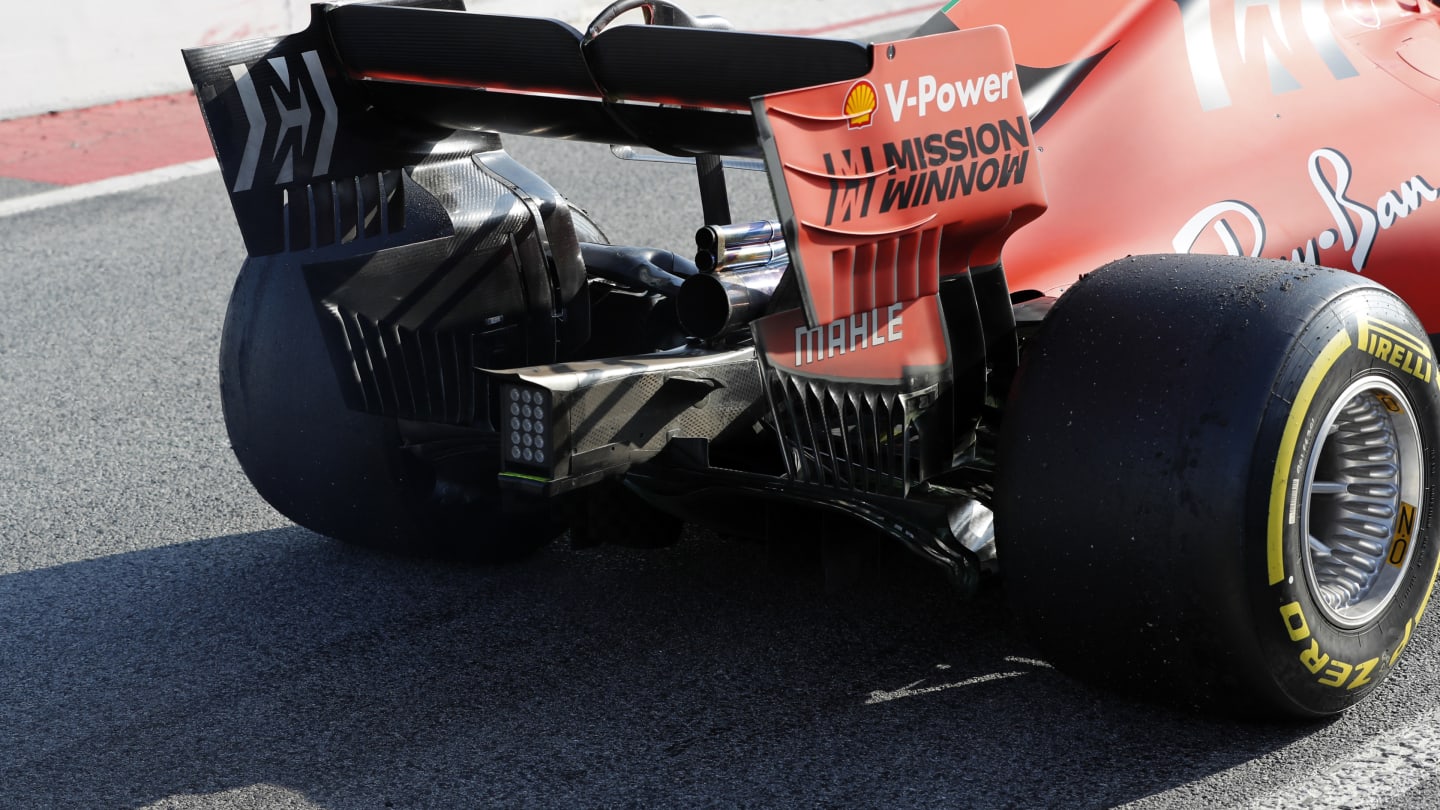
Ferrari experimented with their own version of the ‘extractor’-style rear wheel rims, as introduced by Mercedes at Spa last year. Holes on the inner face of the wheel align with those on the exterior to extract hot air more quickly from the wheel rim, thereby transferring less of the heat to the tyre. The nodules around the outer face of the rim add to the extractor effect and also provide a greater surface area over which to spread the heat – again reducing the heat transfer to the tyre.
ANALYSIS: How the data shows it's advantage Ferrari after Test 1
5. Red Bull’s multi-element rear brake ducts
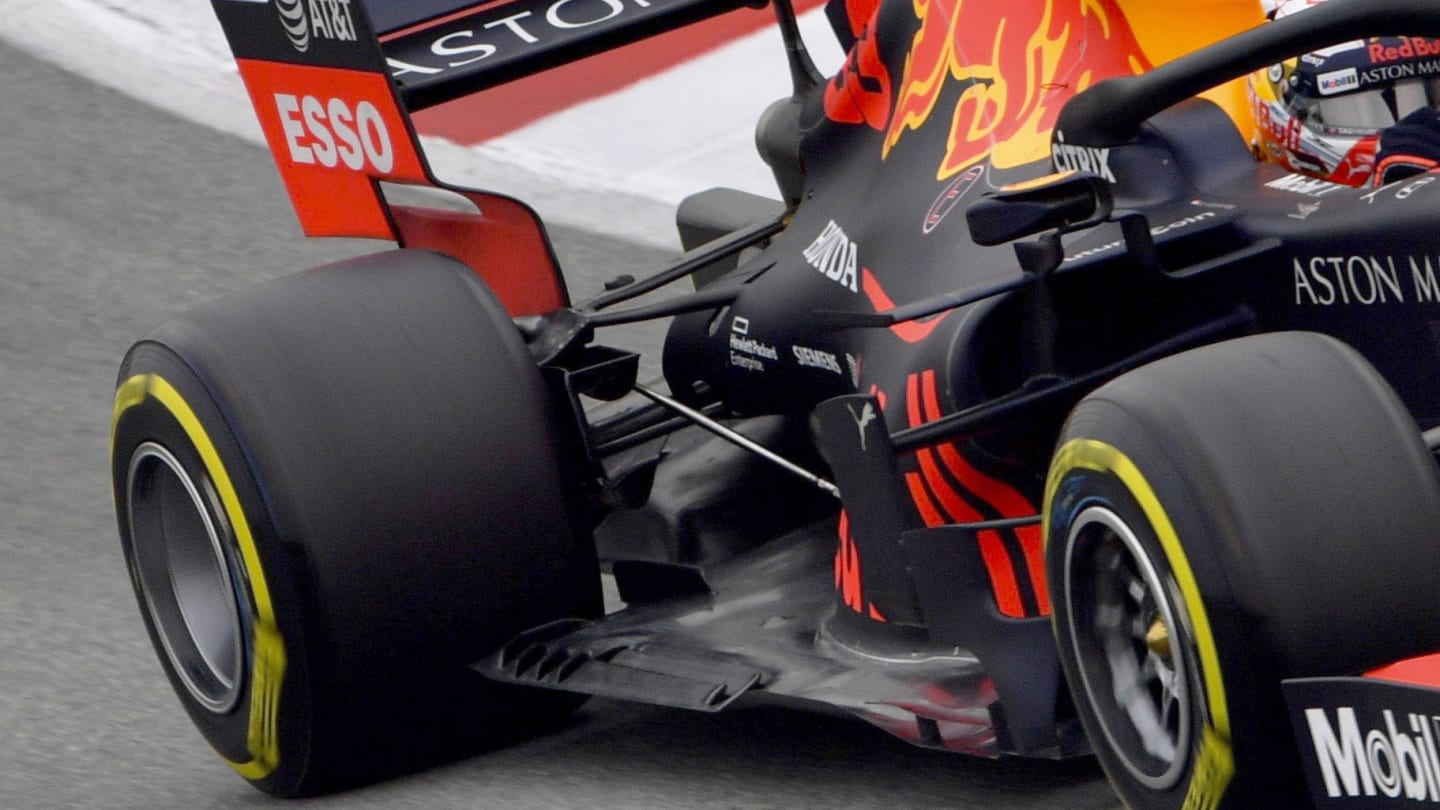
The new aero regulations of 2019 have left the rear brake duct area relatively free – and Red Bull have taken maximum advantage of that to introduce a multi-stacked series of elements atop each duct. Because of where the ducts are mounted, these elements produce downforce that acts directly onto the wheel, without being compromised by having to act through the suspension. Since 1969, the regulations have not permitted wings to be directly mounted to the wheels. But because this is ostensibly a brake duct with a shape that just happens to generate downforce, it gets around this ruling in a small way.
YOU MIGHT ALSO LIKE
TechnicalF1 Unlocked TECH WEEKLY: How McLaren are making the difference in F1’s intriguing 2025 aerodynamic race

Feature Theme park fun, discos with Russell and architect dreams – Getting to know the real Kimi Antonelli
Podcast F1 EXPLAINS: Ask an F1 Team Principal with Alpine boss Oliver Oakes
FeatureF1 Unlocked THIS WEEK IN F1: 10 tough quiz questions on the Saudi Arabian Grand Prix
